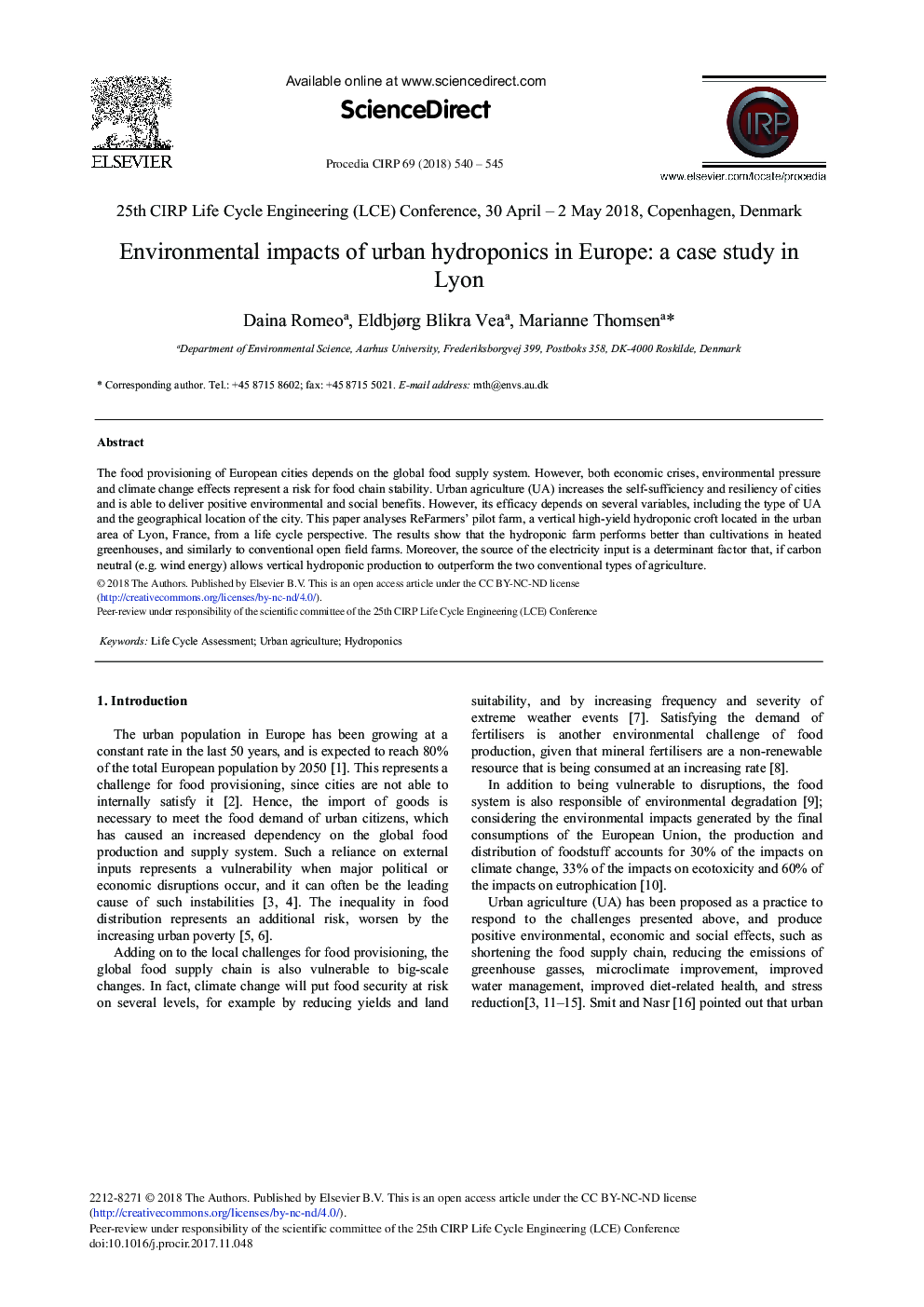| Article ID | Journal | Published Year | Pages | File Type |
|---|---|---|---|---|
| 8050006 | Procedia CIRP | 2018 | 6 Pages |
Abstract
The food provisioning of European cities depends on the global food supply system. However, both economic crises, environmental pressure and climate change effects represent a risk for food chain stability. Urban agriculture (UA) increases the self-sufficiency and resiliency of cities and is able to deliver positive environmental and social benefits. However, its efficacy depends on several variables, including the type of UA and the geographical location of the city. This paper analyses ReFarmers' pilot farm, a vertical high-yield hydroponic croft located in the urban area of Lyon, France, from a life cycle perspective. The results show that the hydroponic farm performs better than cultivations in heated greenhouses, and similarly to conventional open field farms. Moreover, the source of the electricity input is a determinant factor that, if carbon neutral (e.g. wind energy) allows vertical hydroponic production to outperform the two conventional types of agriculture.
Related Topics
Physical Sciences and Engineering
Engineering
Industrial and Manufacturing Engineering
Authors
Daina Romeo, Eldbjørg Blikra Vea, Marianne Thomsen,
